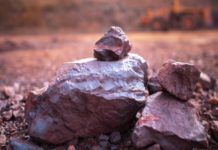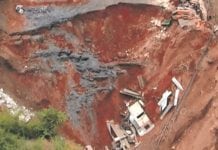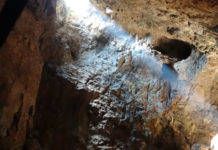
[miningmx.com] — THE release announcing the group’s first-quarter
financials was headlined “Randgold Resources makes strong start to the year’, but
the market seemingly couldn’t disagree more.
Randgold’s LSE-listed shares lost 3.74% on Thursday, closing at £51.50. This was well
below the £56-levels it tested in March following the military coup in Mali – the
location of its flagship assets – and almost at the £51.00-odd mark where it turned
prior to the Easter weekend’s political settlement.
The group traded at £77.20 as recently as February 6 when it reported 2011’s results.
Randgold’s production in 2012’s first quarter was plagued by grade issues and the
knock-on effect of the coup with an unavoidable effect on unit cost. This translated
into earnings per share of $0.97 which was way below a consensus forecast of $1.20.
Yet, with the impasse in Mali resolved and the share already trading at a discount –
1.8 times net asset value compared to the 1.3 times of LSE peers – it would seem as
if Thursday’s movement was an over-reaction.
Few other gold mining CEO’s are as well regarded as Mark Bristow when it comes to
delivering on promises made. It must have been the current aversion to the stock
that compelled him to give a detailed analysis in his commentary on what sets
Randgold apart from its peers.
In short, Bristow said, Randgold “knows what it takes to succeed in Africa’.
“If you want to be in Africa, you need world-class assets which are of value to all the
different stakeholders,’ Bristow told Miningmx. “That’s how you keep
delivering the goods notwithstanding civil wars and coups.’
The coup in Mali was the second instance in as many years where political turmoil had
cast a spell on Randgold. It followed the disputed election of late 2010 in Ivory
Coast, where the company’s newly commissioned Tongon mine is based.
“The Ivory Coast was a complex situation with very clear winners and losers, but Mali
was an event and product of the country’s political evolution,’ said Bristow.
“A few soldiers got pissed off, threw their toys around and before they knew it ended
up controlling the government,’ adding that the region came out stronger and more
stable following the political intervention of Ecowas, a regional group of 16 countries.
He dismissed the notion that the stock would continue to be at the mercy of political
events in the territories where Randgold operates.
“Rather look at how [well] we perform relative to our peers,’ he said.
Numis Securities’ Cailey Barker said the level of Randgold’s share price was a
symptom of the market and not due to scepticism about the group’s prospect.
“We’re just in that type of market at the moment where you get penalised when
things go wrong but not appreciated for doing things right,’ he said.
“The market usually is much more forgiving to them [Randgold]. Its big strength is
that the management team is involved in the business and the politics.’
He said the current price presented a good buying opportunity.








